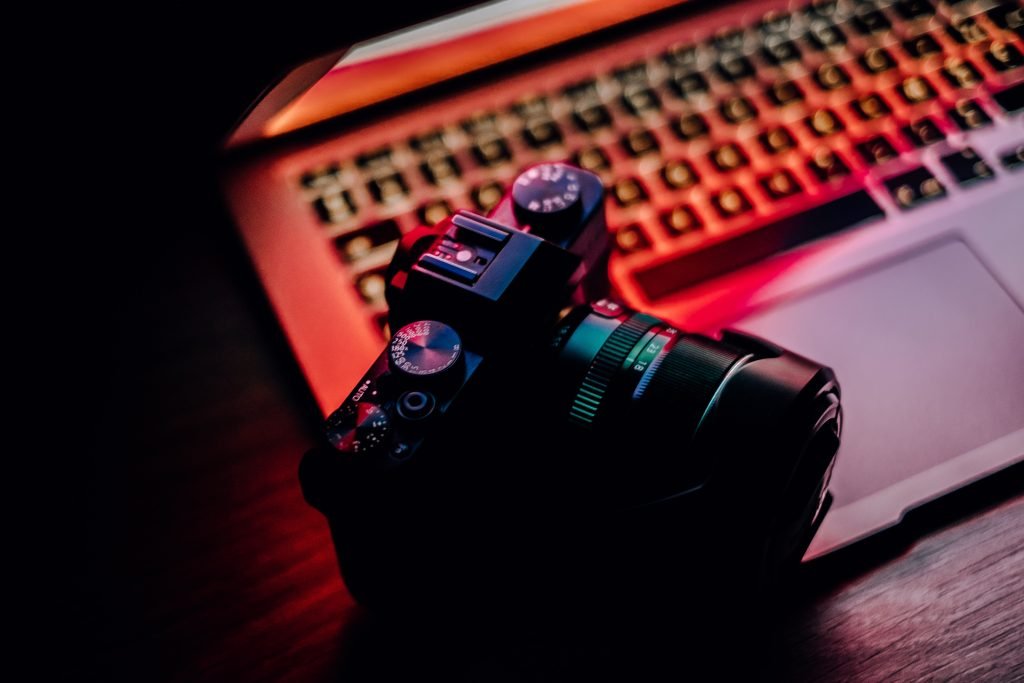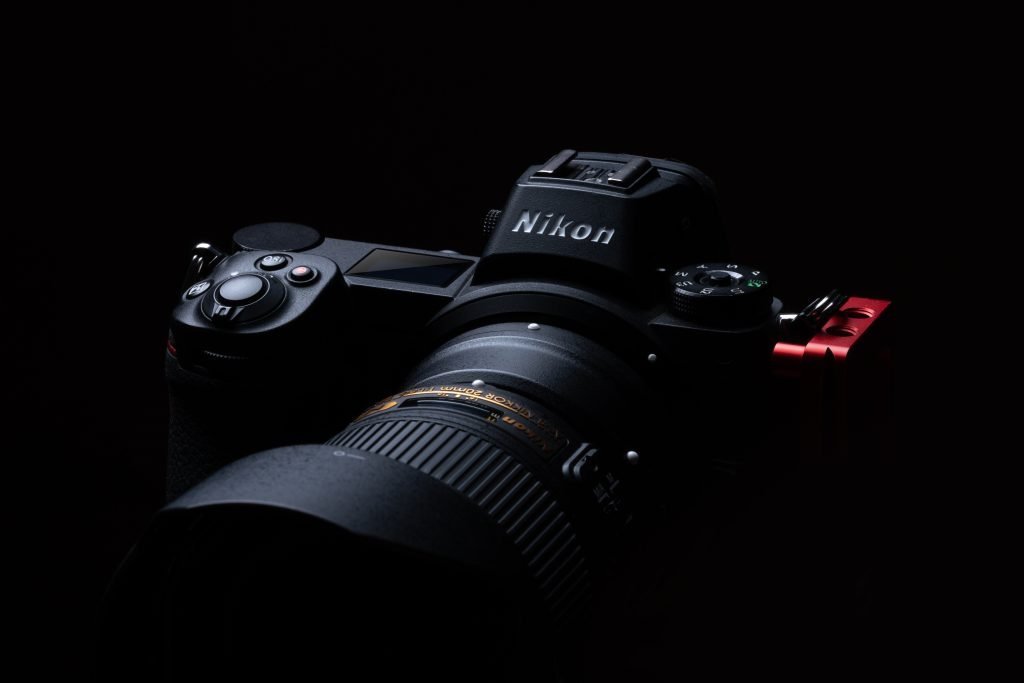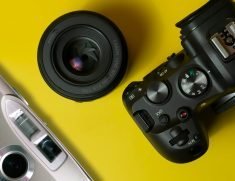Last updated on January 7th, 2024
So, should a beginner buy a mirrorless camera? In the world of photography, there has been a significant shift from traditional DSLRs to mirrorless cameras. With new technology constantly emerging, it’s no surprise that beginners are finding themselves pondering this very question. In this comprehensive guide, we’ll delve into the advantages and disadvantages of mirrorless cameras for beginners, and provide you with insights that will help you make an informed decision.

Mirrorless Cameras: A Quick Overview
Mirrorless cameras, as the name suggests, lack the reflex mirror found in DSLRs. This means that light enters the camera directly onto the image sensor, providing a live preview of the image on the screen or electronic viewfinder (EVF). This design has a number of benefits, including smaller size, lighter weight, and faster autofocus.
The Pros of Mirrorless Cameras for Beginners
1. Compact and Lightweight
One of the most significant advantages of mirrorless cameras is their compact size and lightweight design. For beginners, this can be a game-changer, as it makes the camera easier to handle and carry around. This is especially useful for travel photography, where the size and weight of your gear can make or break your experience.
2. Live Exposure Preview
Mirrorless cameras provide a live exposure preview on the screen or EVF, allowing you to see how the final image will look before you take the shot. This is a fantastic feature for beginners, as it helps you learn about the relationship between aperture, shutter speed, and ISO, and how they affect your photos.
3. Fast Autofocus
Mirrorless cameras generally have faster autofocus systems compared to DSLRs, thanks to their on-sensor phase-detection autofocus. This means that beginners can easily capture sharp, in-focus images even in fast-paced situations, like sports or wildlife photography.
The Cons of Mirrorless Cameras for Beginners
1. Battery Life
One drawback of mirrorless cameras is their relatively short battery life. Since they constantly use the screen or EVF, they tend to drain batteries faster than DSLRs. Beginners may find this frustrating, as they may need to carry multiple batteries or recharge frequently during longer shoots.
2. Limited Lens Selection
While the selection of lenses for mirrorless cameras is growing, it’s still not as extensive as that of DSLRs. For beginners, this might not be a huge concern, but it’s something to keep in mind if you plan on expanding your lens collection in the future.
3. Electronic Viewfinder (EVF)
Some photographers prefer the optical viewfinder of DSLRs over the electronic viewfinder (EVF) of mirrorless cameras. The EVF may have a slight lag or may not be as bright in certain lighting conditions. However, this is a matter of personal preference, and many beginners find the EVF more than adequate for their needs.

Analyzing the Budget: Getting the Best Bang for Your Buck
When it comes to purchasing a mirrorless camera, it’s essential to consider your budget. Luckily, there are plenty of fantastic options for beginners that won’t break the bank. In fact, you can check out our list of the best mirrorless cameras under $1,000 for some top recommendations.
Making the Decision: Is a Mirrorless Camera Right for You?
Ultimately, the decision of whether a beginner should buy a mirrorless camera comes down to personal preferences and priorities. If you value a compact, lightweight camera with fast autofocus and a live exposure preview, a mirrorless camera might be the perfect choice for you. On the other hand, if you prioritize battery life and a more extensive lens selection, a DSLR might be a better fit.
As a beginner, it’s important to remember that the most crucial factor in taking great photos is not the camera itself, but the person behind it. By investing time in learning the fundamentals of photography and practicing your craft, you’ll be able to capture stunning images regardless of the camera you choose.
Tips for Beginners with Mirrorless Cameras
If you decide that a mirrorless camera is the right choice for you, here are some tips to help you get the most out of your new gear:
1. Invest in Extra Batteries
As mentioned earlier, battery life can be a concern with mirrorless cameras. Make sure to invest in extra batteries so you won’t miss any crucial shots due to a drained battery.
2. Learn the Basics of Exposure
Understanding the exposure triangle (aperture, shutter speed, and ISO) is fundamental to taking great photos. Spend time learning about these concepts and how they affect your images, and practice adjusting them on your camera to achieve the desired results.
3. Explore Different Lenses
While the kit lens that comes with your camera is a great starting point, don’t be afraid to explore other lenses to expand your creative possibilities. There are plenty of affordable prime lenses and zoom lenses available for mirrorless cameras that can help you capture different types of images, from portraits to landscapes.
4. Shoot in RAW
Shooting in RAW format allows you to capture more detail and provides greater flexibility in post-processing. As a beginner, learning to edit your photos in a program like Adobe Lightroom or Capture One can greatly enhance your images and help you develop your personal style.
5. Practice, Practice, Practice
Finally, the key to improving as a photographer is practice. The more you shoot, the more you learn. Experiment with different settings, compositions, and subjects, and don’t be afraid to make mistakes. With time and dedication, you’ll see your skills improve and your images come to life.
Conclusion: Should a Beginner Buy a Mirrorless Camera?
Whether a beginner should buy a mirrorless camera ultimately depends on their personal preferences and priorities. Mirrorless cameras offer numerous advantages, such as compact design, fast autofocus, and live exposure previews, making them an excellent choice for many beginners. However, it’s essential to weigh the pros and cons, consider your budget, and, most importantly, focus on developing your skills as a photographer.


